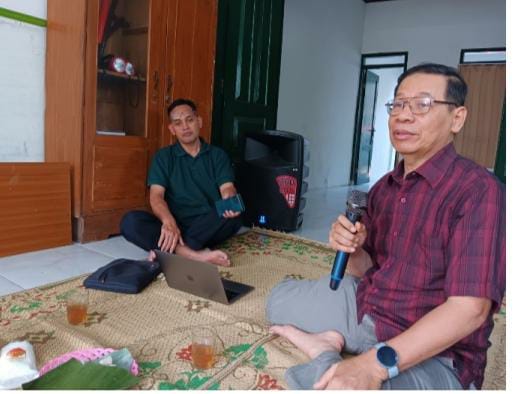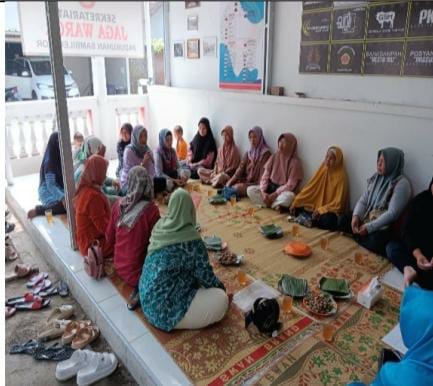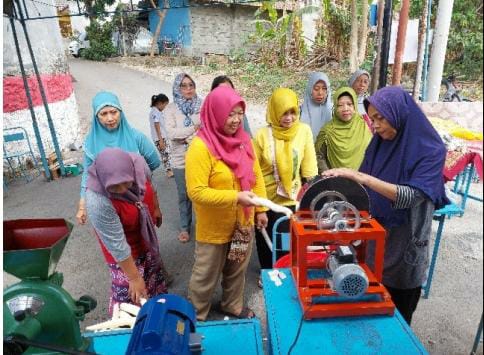
A community service program carried out at the Restu Ibu Women’s Farmer Group (KWT), Maguwoharjo Village, Depok Subdistrict, Sleman Regency, successfully improved the quality of MOCAF (Modified Cassava Flour) and developed a range of MOCAF-based processed food products.
The program ran for eight months, from April to November 2024, and involved a team from the Faculty of Agriculture Universitas Gadjah Mada (Faperta UGM), consisting of Muhammad Saifur Rohman, S.P., M.Si., M.Eng., Ph.D., Dr. Ir. Triyanto, M.Si., along with students from the Aquaculture Study Program, including Nanang Kurnia Putra, Khoridatul Lutfiyah, Miftakhul Jannah, Devian Bilhaq Robby Muhammad, and Matteo Abraham Kobe Susetyo.

In the first year, KWT Restu Ibu had already attempted to produce MOCAF flour; however, the resulting product had a crude fiber content that exceeded the Indonesian National Standard (SNI) for MOCAF, requiring improvements in quality. In its second year, the community service program focused on training, hands-on practice, and mentoring to enhance the quality of MOCAF flour to match that of commercial products from large companies. This was achieved by applying Lactobacillus sp. bacterial isolates and a four-hour cellulase enzyme treatment prior to fermentation.

“We’re very pleased with the results, especially the improved MOCAF flour, which now is better quality and is ready to compete in the market. In fact, this flour can now be used as a raw material for products such as MOCAF brownies, ‘onde-onde ketawa’, and MOCAF sticks,” explained M. Saifur Rohman, Ph.D., the head of the community service team.
This program not only increased the production capacity of KWT Restu Ibu but also opened new opportunities for the group to compete in the local market while promoting the development of high-value-added food businesses based on local ingredients.
These efforts align with the Faculty of Agriculture UGM’s commitment to supporting the achievement of several Sustainable Development Goals (SDGs), including SDG 1: No Poverty, SDG 2: Zero Hunger, SDG 4: Quality Education, SDG 5: Gender Equality, SDG 8: Decent Work and Economic Growth, and SDG 17: Partnerships for the Goals.
Writer: Agrit Kirana Bunda, Ghorizatu Shofra
Editor: Desi Utami
